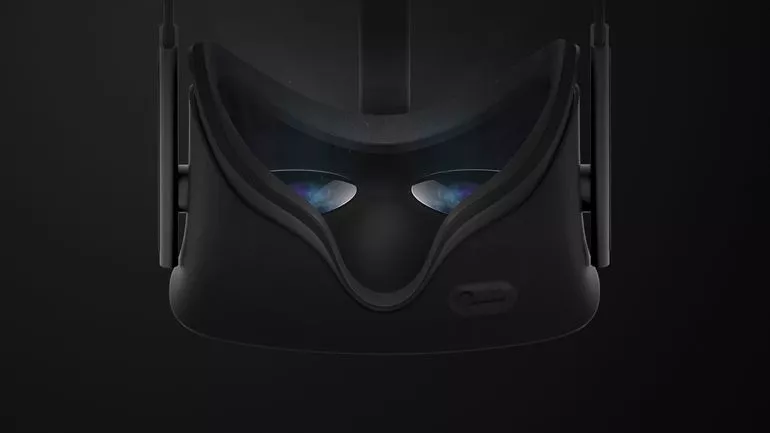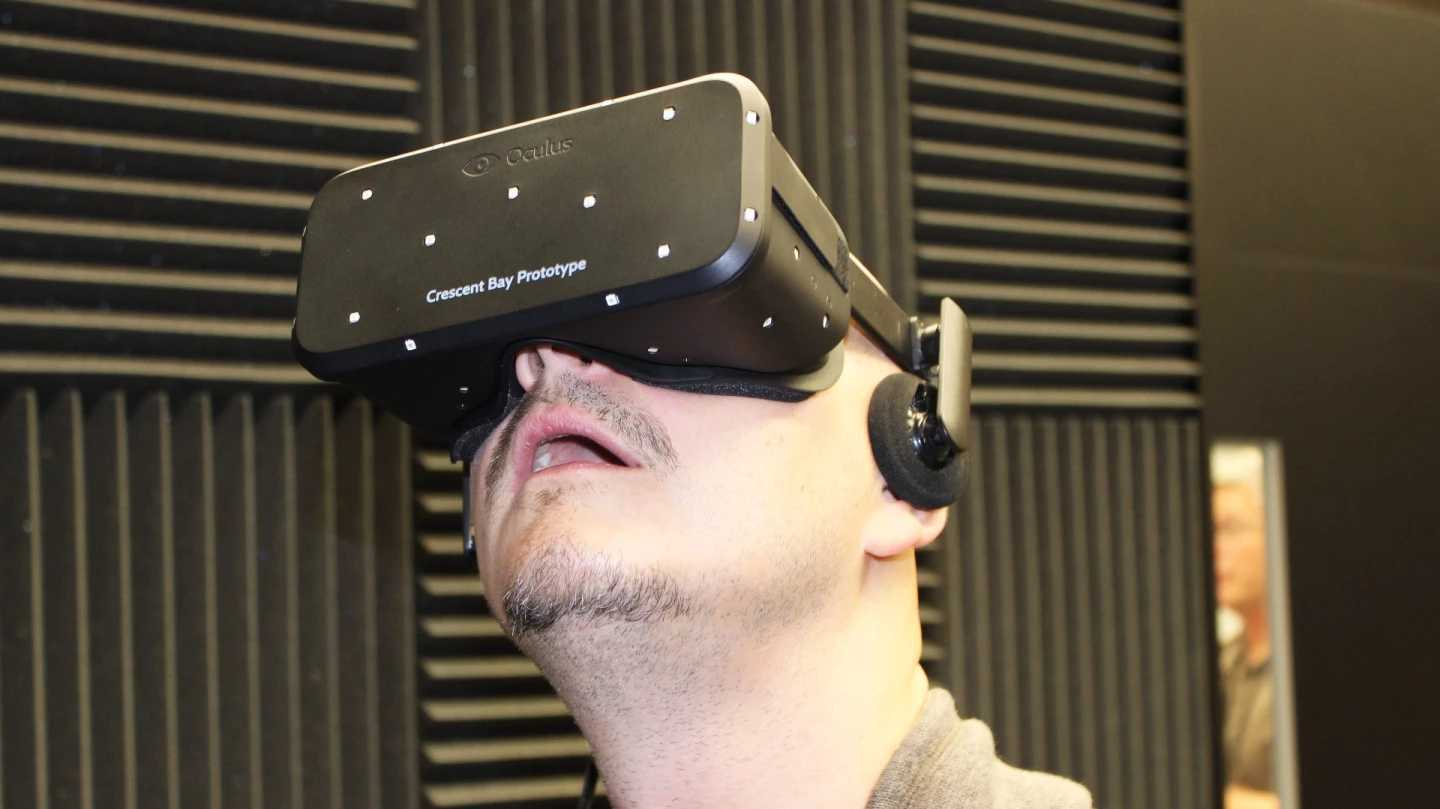If you pay attention to tech or gaming news, you're going to hear a lot about virtual reality in the next week. Oculus will be officially launching the Rift tomorrow, and other big VR companies will be showing off their work at next week's E3. Is the world ready?
Full-on consumer virtual reality will be here soon. HTC says the Vive will launch later this year, while the Oculus Rift and Sony's PS4-based Project Morpheus will follow in early 2016. Samsung's Oculus-powered Gear VR, which you can buy today, is already awfully close to being a full consumer product, though the companies insist that the real consumer version won't arrive until later this year.
Ready or not, the tech world is almost ready to introduce us all to mainstream virtual reality. Will the world care?

... actually, scratch that: we already know that tech enthusiasts and hardcore gamers are going to flock to VR without hesitation. That part of the world has already tried it, loved it and is now practically begging Oculus and its competition to take their money.
But what about everyone else? Is virtual reality ready for a mainstream explosion, like the Internet in the mid-90s or smartphones (i.e., the mobile Internet) in the late 2000s? Or will it be more like the Segway or Google Glass – technologies that created some initial excitement, but gathered stigmas that quickly pushed them to the sidelines?
VR does have one huge advantage over Google Glass. Though, like Glass, you'll look very strange wearing a VR headset, VR is meant to be used behind closed doors – either in the privacy of your own home or in another designated (usually private) area. In fact, that's practically a necessity, as using a device in public that completely shuts out your surroundings – both visually and aurally – could be a safety threat.
The at-home factor alone should reduce the potential for social stigmas outweighing the joy of using the product.

There's also the potential obstacle that most of these first VR headsets won't be simple, standalone products. HTC is planning that for the Vive, but the Gear VR requires a specific Samsung smartphone, the Rift will require a (fairly powerful) gaming PC and Morpheus will require a PS4.
You could make the case that this fact alone is going to leave VR in early adopter territory for a little while. Will non-enthusiasts want to change phones, buy or build an expensive PC or get a specific console just to get in on the fun? Not only is that pricey; it also carries a certain degree of complexity.
On the other hand, virtual reality has the potential to change the way we interact with the world – like the Internet and mobile Internet both did. While VR doesn't specialize so much in information the way those revolutions did, it does excel in transporting you to wild and wonderful new places. These can be real places from the past or present (including, eventually, in real-time ... which could once again change the way we communicate) or fantastical places that an animator or game developer has dreamed up.
VR's ability to transport you is only limited by the imaginations of the people creating content.
If VR hits the right notes with consumers, it could become the teleporting machine that sci-fi has been fantasizing about for decades. Only, instead of physical teleporting, it's experiential teleporting: presenting your mind with enough sensory evidence that you're somewhere else, until your disbelief is temporarily suspended.

There's no doubt that the potential is there. We've already imagined ways (that have nothing to do with gaming) in which VR could change the world. But the next couple of years should tell us a lot about the rate of adoption, and how long it will take for that adoption to extend beyond geeks and enthusiasts (assuming that it, at some point, does).
Which brings us to this coming week, starting with the Oculus event tomorrow. Will the VR companies tell a story that grabs the attention of regular Joe's and Jane's, as well as the enthusiasts that are already chomping at the bit? How do you even sell VR to someone who's never tried it? Or do you not even bother with that – instead trusting that a great product will generate the kind of word-of-mouth (or, in today's age, word-of-social-media) marketing that money can't buy?
We'll find out very soon what kinds of marketing angles the big VR companies are cooking up. And it's going to take some time before we know how effective that will be.

Perhaps game consoles (appropriately) will be the most likely role models for VR platforms. As a child in the 80s, my first experiences with the Atari and NES kindled a wide-eyed sense of wonder that's harder to replicate as an adult. Though those same games only give me slight glimmers of that feeling today, VR rekindles that childlike sense more than any form of entertainment since (certainly more than today's cinematic AAA video games or fads like 3D movies ever did).
Gaming spent many years as a "kids' product," but as that first generation of child gamers grew up – and realized there was no reason for them to leave their hobby behind – it blew up as a lucrative industry that now knows no generational boundaries (well, almost no boundaries – gaming demographics do still lean more towards younger adults than older ones).
Perhaps, like gaming, VR will start with the most wide-eyed of users, and only gradually erode the stigmas and unfamiliarity that keeps the rest of the world from joining the party.
So what do we think? Well, in our eyes, any technology that can rekindle, and perhaps surpass, the pure joy and awe of playing Super Mario Bros. or Mike Tyson's Punch-Out for the first time – only 30 years later – has a great shot at widespread success. Whether it's in a year or a decade, it may simply be a matter of a) getting VR to a consumer-ready, high-quality stage and then b) getting enough people to try it. That first step began years ago, but the second step starts tomorrow.
Gizmag will be on the ground at tomorrow's Oculus Rift launch event, as well as E3 next week, so be sure to check back as the story unfolds.







